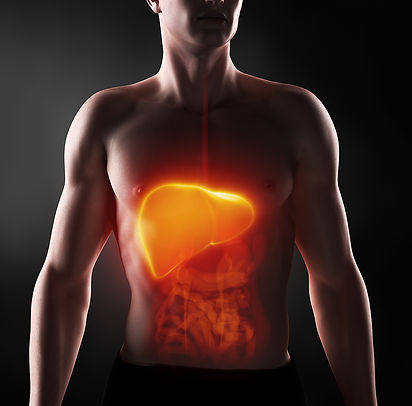
Vegetarian World
The Human Liver

The Liver governs the sense of Sight and when detoxified, celebrates lightness with good humor and the vision of horizons.
THEin addition to producing bile, the liver is the "Laboratory of the Body", being responsible for analyzing everything that enters, in addition to synthesizing many proteins and other substances necessary for the proper functioning of our organism .
Several factors dysregulate and mistreat the liver:
1- Food full of chemical additives and poor in nutrients,
2- Dehydration: the lack of water affects all the vital functions of the organism and also the production of bile, favoring the formation of stones.
3- Excessive stress and emotional repression.
These factors cause subtle changes in the composition of bile that doesn't flow properly and ends up forming stones that clog the ducts and decrease the liver's effectiveness in its various tasks. And in addition, its malfunction compromises the work of the kidneys.
“The liver and the path of stones”.
Thousands of people have diagnosed gallbladder stones. What most don't know is that we all have tiny liver stones, most of which are a little larger than grains of sand.
When they appear in the gallbladder, it is because they have already clumped together, forming larger stones.
The role of the liver in digestion is:
-
Transform galactose and fructose into glucose to be used as an energy source;
-
Store glycogen and turn it into glucose, sending it back into the blood when needed;
-
Transforming proteins into amino acids, the synthesis of non-essential amino acids and the production of essential proteins such as albumin, transferrin, fibrinogen and other lipoproteins;
-
Store fat-soluble vitamins and minerals;
-
Filter the blood, sending toxins to the kidneys to be eliminated.
-
In addition, the liver transforms dietary fat and accumulated fat as a source of energy when needed.
Function of the Liver in the Body:
The liver performs many important functions in the body, some of these functions are:
-
Storage of vitamins A, B12, D and E, and some minerals such as iron and copper
-
Destruction of old or abnormal red blood cells
-
Emulsification of fats in the digestive process, through the secretion of bile
-
Glucose storage and release
-
Plasma protein synthesis
-
Cholesterol synthesis
-
Production of fats (Lipogenesis)
-
Production of platelet precursors
-
Conversion of ammonia to urea
-
Purification and detoxification of various toxins
-
Detoxification of many drugs
-
A liver deficiency can endanger health and even life, as in the case of hepatitis, fatty liver or cirrhosis.In addition to these, other diseases involve the liver and, despite its great ability to regenerate, in the case of very serious or irreversible diseases, liver transplantation is indicated.

